Useful tips for Huesca bus groups with ‘what to see’ and ‘what to do’ items and ‘bus- friendly’ or must see tourist sites in Huesca. Check our list of attractions before planning your bus tour with a stop or departure in Huesca. Let us know if your favourite attraction or ‘bus-stop’ is not there and you think we should add it to our list of Huesca highlights.
Huesca is a great place to do winter skiing. From Madrid and Zaragoza there are many ski tours that are organized by travel agencies and tour operators that take groups in coach or bus to ski areas such as Ski de Cerler in Valle de Benasque, Ski de Astún in Valle del Aragón or Ski de Cadanchú in Pirineo Aragonés.
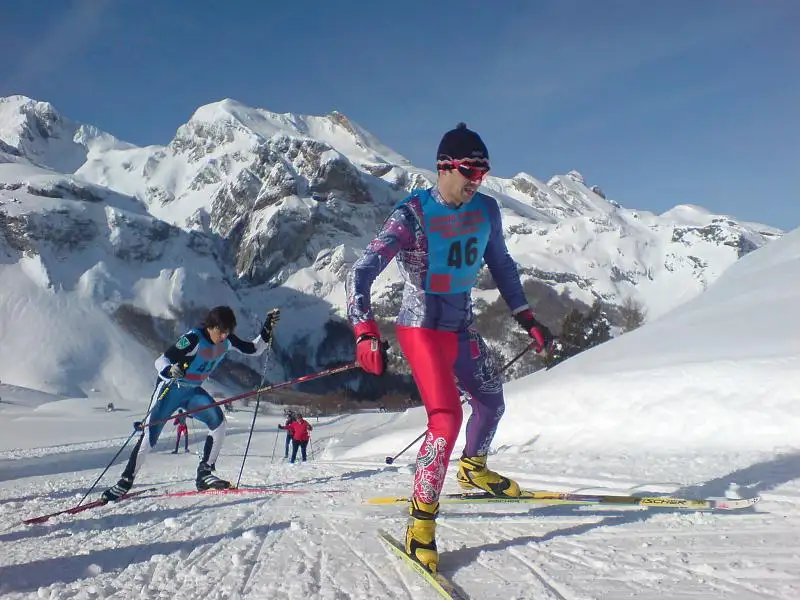
Because the valleys and ranges of the Pyrenees are very important for tourism, we suggest a coach or bus travel to the nature parks that are idea for adventure sports and skiing. Of particular interest is Parque Nacional de Ordesa with glaciers andthat is part of the national park system of Spain and forms part of Reserva de la Biosfera Ordesa Viñamala. It was declared a heritage landmark by UNESCO; Parques Narturales de Guara that has canyons and is considered amongst the most beautiful parks in all of Europe and Parque Natural Posets-Maladeta with its more than 95 lakes, flora and vegetation and where you can see the three glaciers of the solids Maladeta, Perdiguero and Posets.
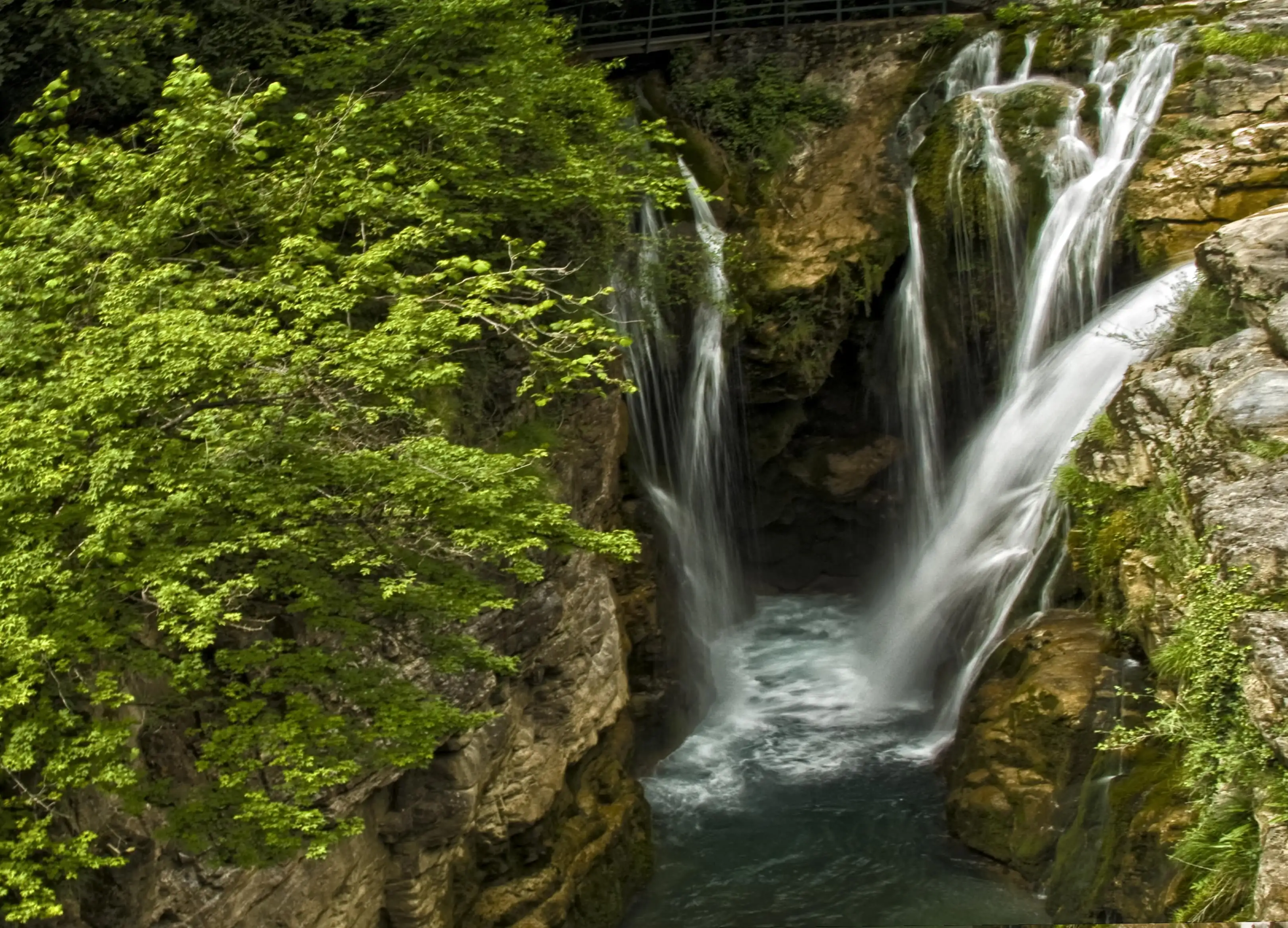
If you like to visit nature, your trip with bus or minibus rented with driver around Huesca can start with a visit to Espacio Natural del Valle de la Garcipollera in the north of Jaca in the Valle del Rio Aragón where you can see lush vegetation and a hunting reserve; Parque Natural Protegido de San Juan de la Peña y Monte Oroel where you can see the medieval monastery and Monasterio Viejo de San Juan de la Peña.
The other tour that you should take is to Ciudadela de Jaca that has been preserved separately and has other buildings from all over the world. This where between 1076 and 1082 Catedral de Jaca was built. Also you should take a guided tour of Museo de Arte Sacro Medieval.
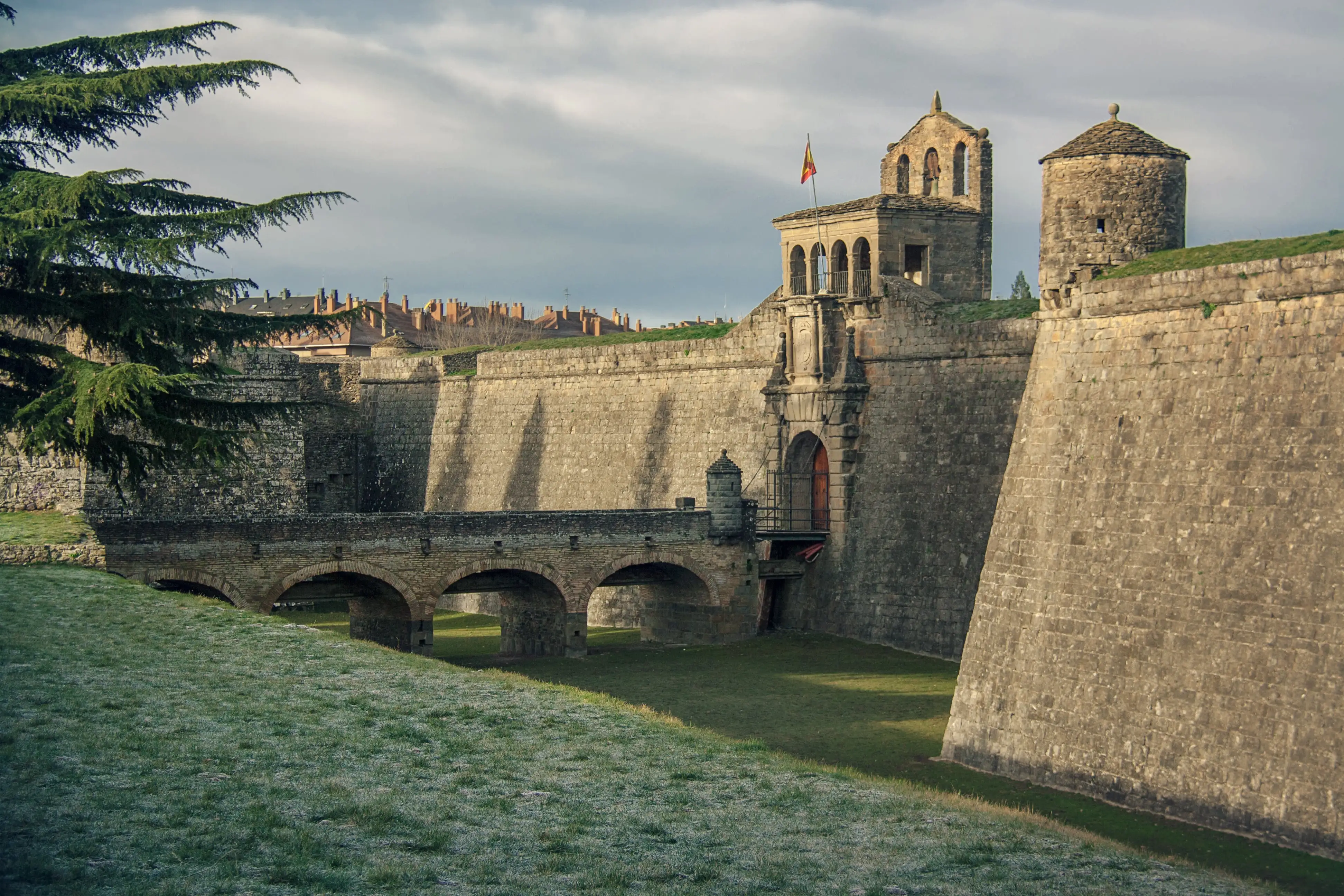
If you are a wine lover, you need to go to Sotomana the center of the wine industry in this region. In its capital Barbastro, you can take a guided tour of Santuario de Torrecuidad inaugurated in 1975 in honor of the Virgin Mary.
We advise you to travel to the Bodega Iríus in Barbastro and Bodegas y Viñedos Reino de los Mallos in Murillo de Gállego where you can try their wines and take long walks in their vineyard. Also there is Bodegas Enate in Salas Bajas with their Syrah2007 that was elected as solidarity wine in 2011-2012
If you want to golf, the province that several golf courses. They are Golf de Guara in Nueno a space that is like a dream; Club de Golf de Jaca in Jaca and Margas Golf in Sabiñánigo with its 18 holes.
To organize events, meetings of associations or professions, you should consult at Oficina de Congresos de Huesca (Fundación Huesca Congresos) at Plaza López Allúe, nº s/n in Huesca.
When it comes time to eat, we recommend to visit some of the following restaurants: Restaurant Pirenarium in Sabiñánigo a thematic restaurant with self-service; Restaurant Las Torres in Huesca with its excellent dishes and decor and Restaurant Casa Blasquico in Valle de Hecho that offers traditional cuisine in a youthful atmosphere.
You can rent a bus with chauffer in Huesca for tours in the city or in Huesca Province. Huesca offers too many tourism options to name them all here, so we’ve chosen a few of the most interesting ones, such as the Cathedral, which is in the middle of the historic district on top of a hill. Built in the gothic style, it was begun by James I at the end of the thirteenth century and finished in the sixteenth century. The entrance features sculptures of the apostles carved in high relief. The altar piece of the Main Altar is the work of Damian Forment and is a fundamental part of the configuration of the great plaza. Arab murals and Torreón del Amparo (The Hightower) are located in the walled city along with the only complete tower, which is part of the best-preserved part of the wall. These important ruins and the excavations in front of El Convento de San Miguel (Saint Michael’s Convent) give you a pretty clear idea of what Huesca was like in the past.
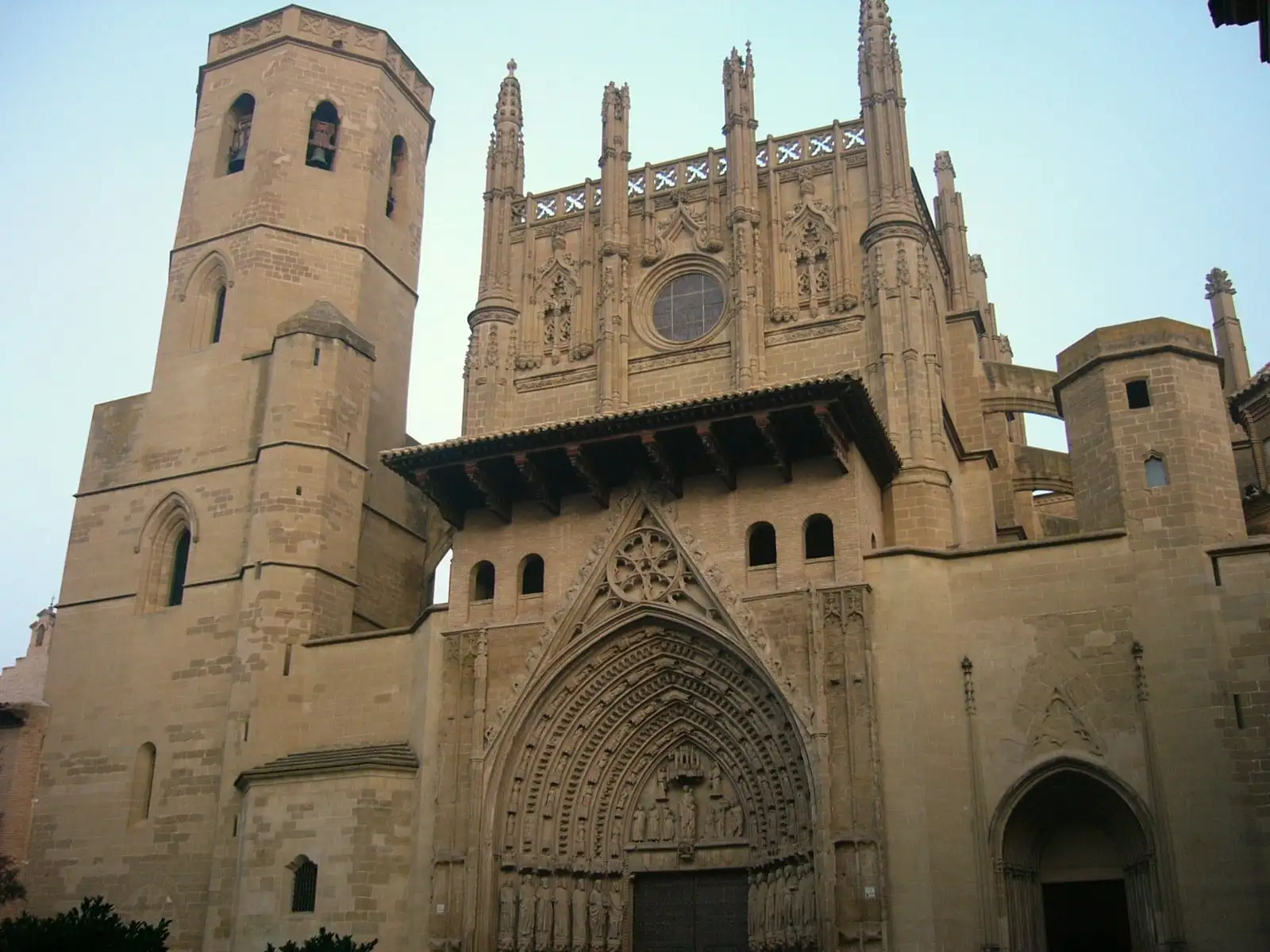
During the last few years more economic, healthier transportation methods have been implemented, namely in the form of bikes. To take full advantage of bikes, the provinces and cities have created mountain bike routes with tour guides and GPS so that local residents or tourists who want to rent bikes can enjoy them. Various bicycle rental stores geared towards tourism have opened, such as Ciclos Alonso, Ciclos Cored, or Pirineo en Ruta.
The historic district of the city is surrounded by walls in what is now Coso, El Trasmuro, and Costa Street, and the area around Plaza de la Catedral, where City Hall (el Ayuntamiento) is also located. City Hall features admirable artwork, furniture, and sculptures. University Square (Plaza Universidad) is nearby.
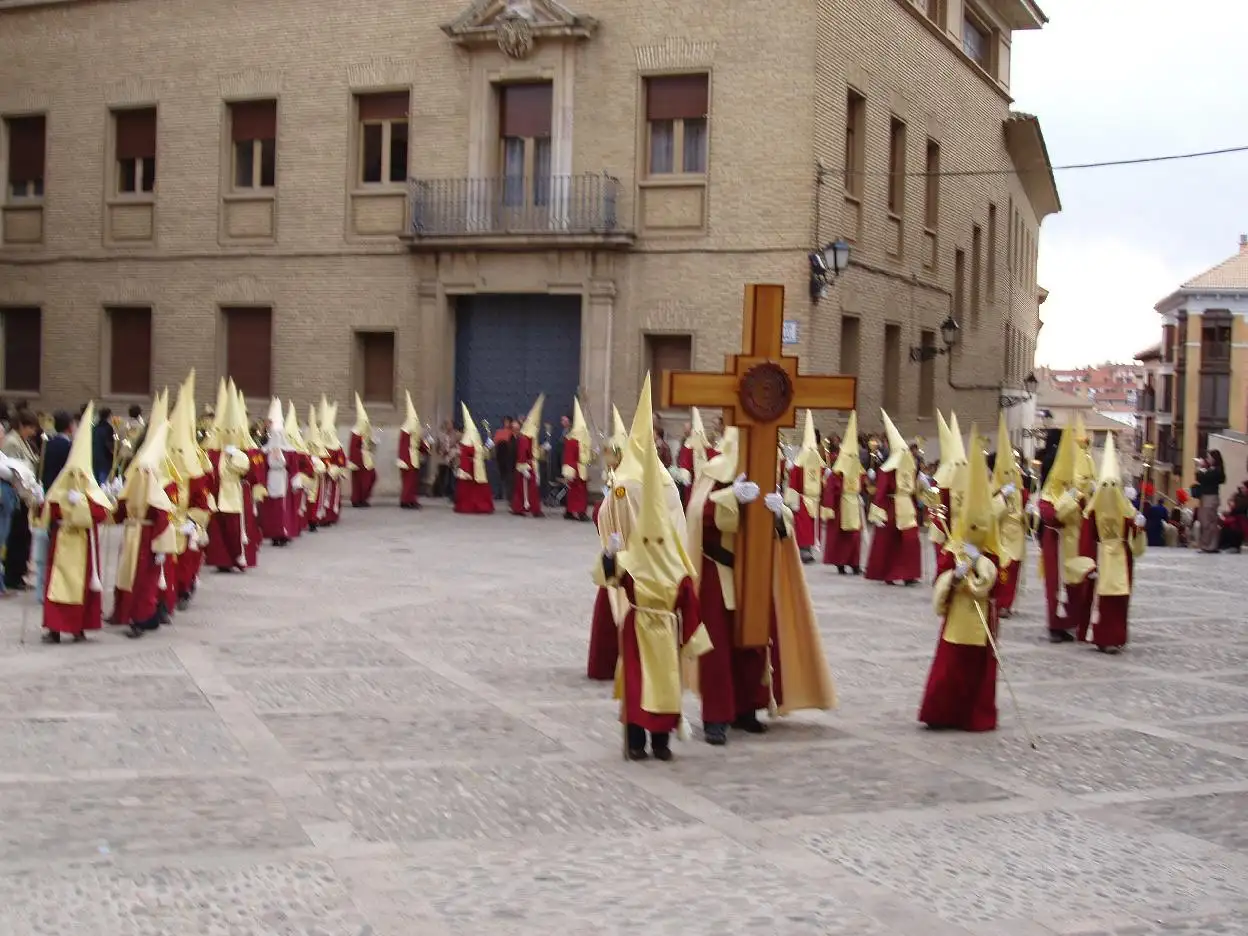
While wandering around in the historic district, stop by Miguelas Convent, a structure with Romanesque and gothic art. Continue your journey at San Pedro El Viejo, which dates to the 12th century and features a cloister where the kings of Aragon are interred. Next, visit the city wall, walk up and down some hills, or stop by Montearagón, which is like going back in time to the era of knights in shining armor.
Porches de Galicia Street is considered to have the best views of Huesca. This street has arcades on both sides and is home to the Huesca Council Office, a building with a fascinating ceiling decorated with a huge painting by Saura. At the end of this street is Plaza de Navarra, where you can relax, breathe in the fresh air, or admire the fountain or the façade of Huesca"s casino.
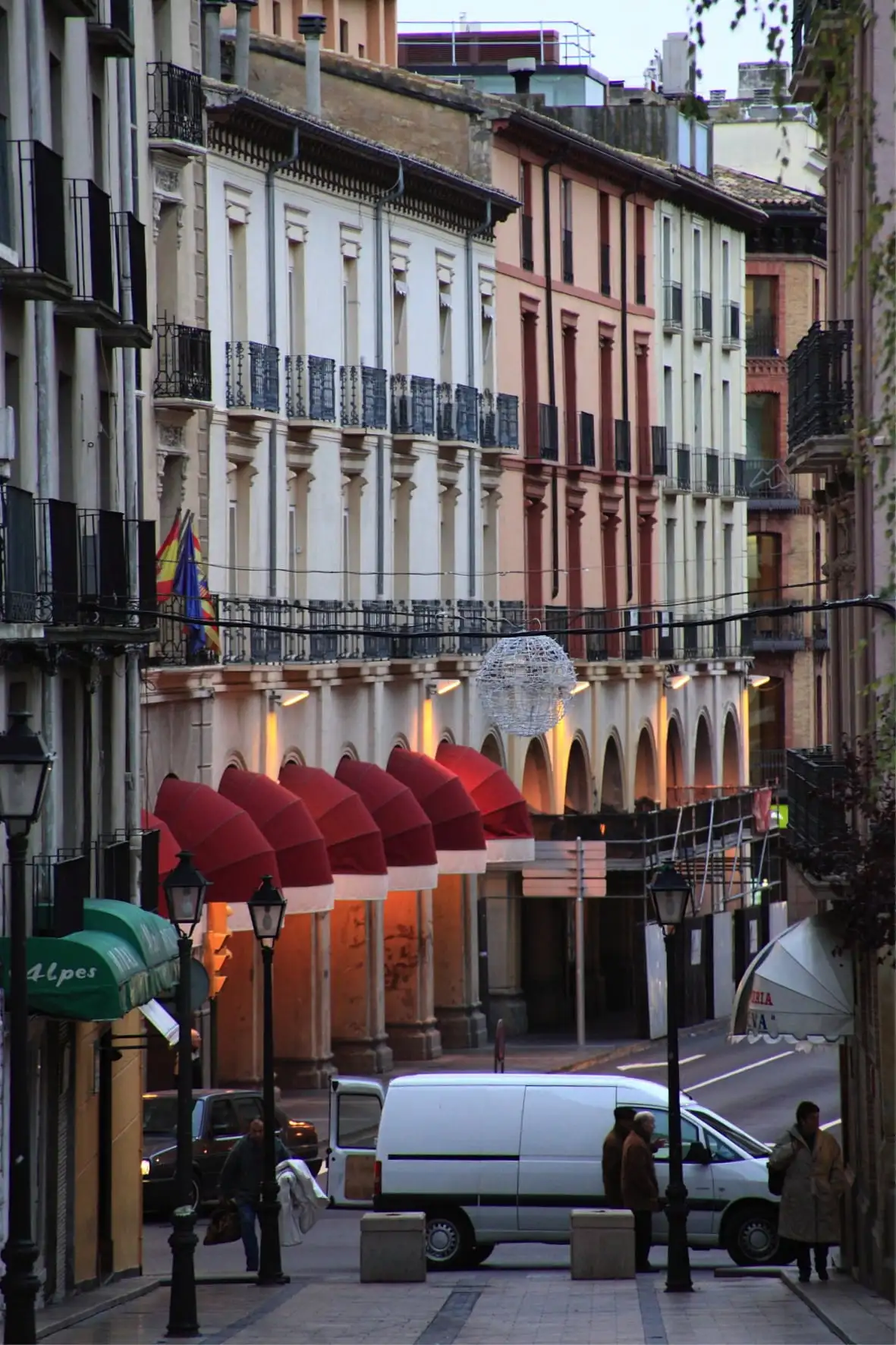
You can take a coach rented with driver downtown to Miguel Cervet Park, where you can admire your surroundings, including the flora and fauna and the pools; little ones will enjoy the playgrounds and the shows that are put on there.
If you want to rent a bus for an excursion or trip that originates or terminates in Huesca, we suggest including these stops in your itinerary:
Incredible murals adorn the city; they compete with the painter Goya in the Prado Museum in Madrid. They’re worth admiring and photographing; you’ll constantly be surprised by their subject matter, concepts, techniques, and the perfection with which they’ve been executed.
In what used to be the palace of the kings of Aragon in Huesca, inside the baroque Museum of Huesca there are two Romanesque halls: the chapel of Mistress Petronila and the bell hall. This is where history and legends meet.
Also known as Miguel Servet Park, located downtown, this is considered to be the lungs of the city, an ideal place to relax and enjoy the fresh air and the trees.
Situated in la Plaza Alfonso el Batallado, this place has a terrace, a dining area, and a bar; they serve delicacies such as caracoles a la antigua (herb-infused escargot), red tomatoes with ham (tomate rosa con jamón), grilled veggies (verduras a la brasa), shrimp (gambas), and the house specialty, tuna marinated in an acidic brine; they strike a good balance between price and quality. We highly recommend eating here.
Located in the historic district, on Plaza de San Pedro Street, this monastery was declared a National Monument in 1885; it is one of the most important Romanesque monuments in Aragon. The monastery’s cloister and church are full of details that make it worth visiting.
NoneWould you like to organize a bus tour to see all these beautiful highlights? Request quotes and compare the different bus and coach hire companies: